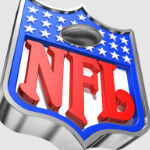 Sounds nice, doesn’t it? He Mom, they just made me a franchise player!
Sounds nice, doesn’t it? He Mom, they just made me a franchise player!
Well, in one way it is nice. The player just made a deal for a whole bunch of money for a one year deal during which the player must, in effect, prove his value to the team while risking serious injury, for a one year contract.
So maybe it’s not such a great deal as it sounds, eh? Most NFL players avoid the franchise tag like the flu because it hinders their ability to seek long-term job security and carries an unwanted stigma these days. The name itself is misleading.
Washington Redskin’s tight end Fred Davis received the franchise tag in 2012 when he was unable to work out a long term deal with the club owing to his injuries and a four game suspension for violation of the NFL substance abuse policy. Still in all, Fred got a $5.446 Million deal for the year, so maybe the franchise tag isn’t so bad after all.
The franchise tag is used by NFL teams to retain the rights to a player on the team that is coming up for free agency soon. There are basically two types of franchise tags, the exclusive franchise tag and the non-exclusive tag. Franchise tags must be handed out during a two week period starting in mid February each year after the Super Bowl.
Now here is where it starts to get a little complicated. When a club offers a player a non-exclusive franchise tag the player must be offered a one-year contract which is based on what they have been playing for this position over the past five years plus their percentage of the current year’s salary cap, or 120% of his last season’s salary.
Under the non-exclusive tag, a player is allowed to negotiate with other clubs, however, should he sign an offer sheet elsewhere, his team will have five days to match the offer. If they don’t then his old team will get 2 first round draft picks to make up for the loss.
If the player signs an exclusive franchise tag he also gets a one-year contract and his salary is based on the top five salaries at his position after the end of the free agency period, or 120% of what he got last season but he cannot leave the team. NFL teams like to use the non-exclusive tags for most players while reserving the exclusive tag for quarterbacks and other high profile players.




